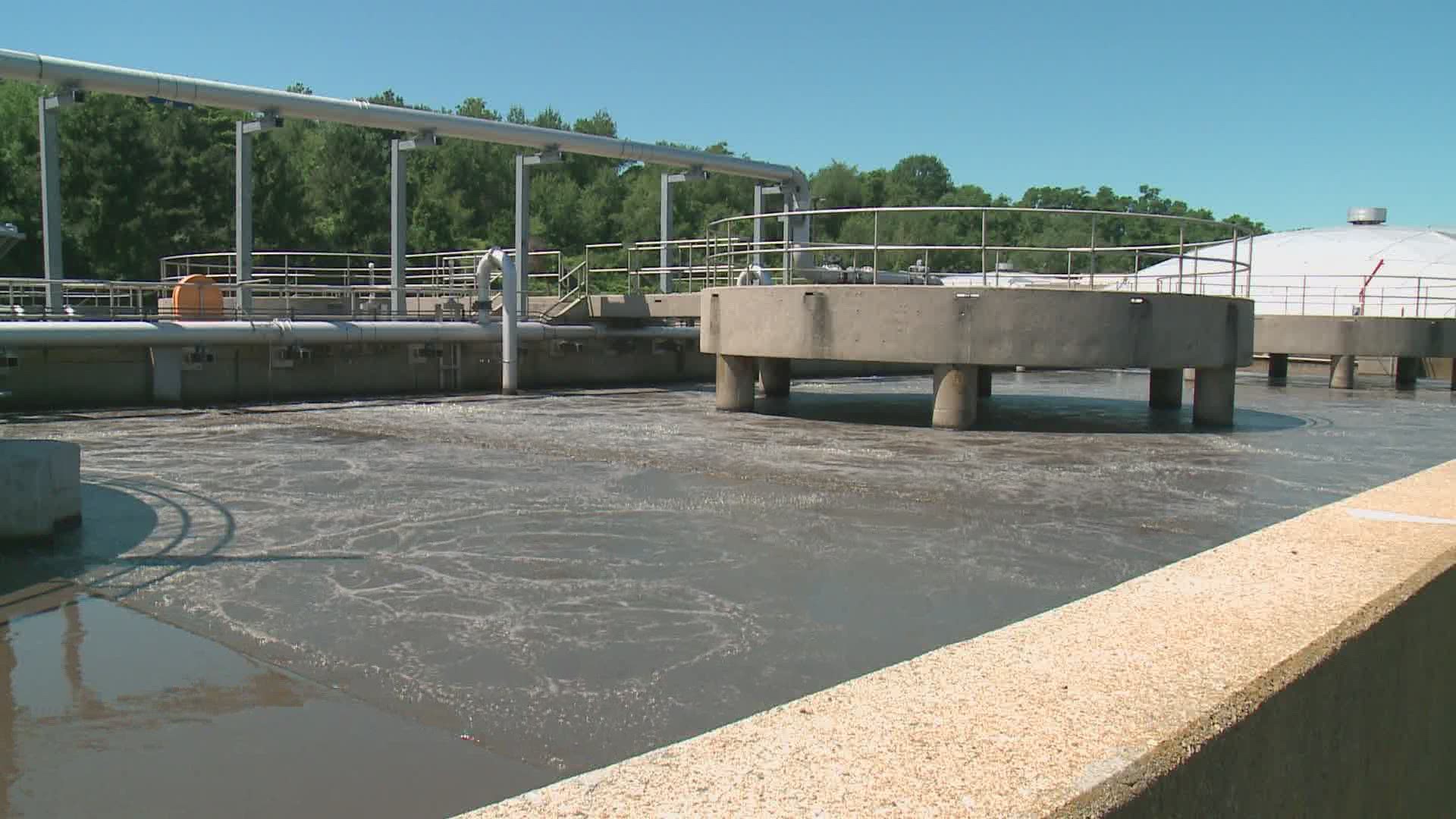PORTLAND, Maine — A newly developed method from New England-based lab IDEXX is being used to provide early warning signs to prevent the spread of COVID-19 in a process called wastewater epidemiology. Wastewater testing is less expensive and invasive than individual diagnostic testing.
The Portland Water District and Saint Joseph’s College have teamed up to test Greater Portland’s wastewater for inactive SARS-CoV-2 (COVID-19) fragments. The Portland Water District has worked closely with the college, Maine Department of Environmental Protection (DEP), and the Maine Department of Health and Human Services (DHHS) to establish the three-month testing program.
The first samples were collected at the Portland and Westbrook wastewater plants, and on Wednesday samples were taken from the East End wastewater plant. Samples will be delivered to Saint Joseph’s College where results will be analyzed and trended by a research team led by Dr. Yolanda Brooks, assistant professor of biology.
Last week, the Greater Augusta Utility District began collecting wastewater samples as well. Their samples will be sent to Biobot’s lab in Boston.
RELATED: Greater Augusta Utility District to begin collecting wastewater samples for COVID-19 testing
Scott Firmin, the director of wastewater services for the Portland Water District, explains that the East End wastewater plant receives all the wastewater of the City of Portland—an estimated 65,000 people—every day. People who are infected with COVID-19 will shed the virus, and by taking samples from the wastewater researchers can make estimates about infection rates within the city. The data can also provide trend information to see if the rates are steady, increasing, or decreasing.
The Portland Water District says this new effort aims to lower costs by as much as 90% in some cases, improve detection limits, and address other challenges associated with more rural states, like Maine.
While COVID-19 wastewater-based epidemiology is increasing across the country, there are no standard tests or methods and costs can be a limiting factor, sometimes costing $1,500 a sample. Firmin said because Maine is more rural and spread out compared to most states, it makes it difficult to detect the virus, but working with Saint Joseph’s they’re working together to develop a Maine-based solution to detect fluctuations in a low infection rate population.
“Since first learning of the possibility, we’ve understood the importance of engaging with the public health sector,” Firmin said in a statement. “Having DEP and DHHS aware of our data will hopefully make this effort a valuable component of a larger sentinel monitoring effort.”
The Portland Water District said if the effort progresses well, it could provide a lower cost and more sensitive test for other Maine communities.

